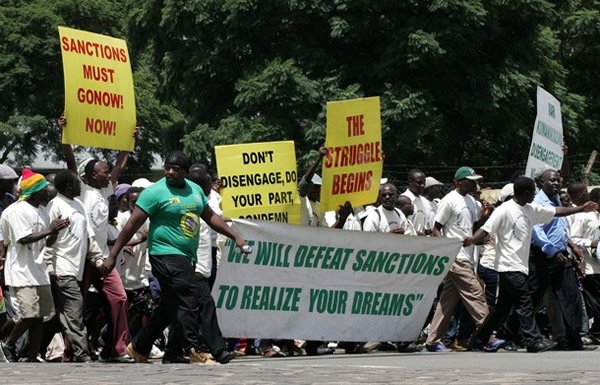
As the MDC policy conference is almost around the corner, it is important to look at one of the most controversial issue of land and agricultural policy.
Sunday Opinion with Shakespear Hamauswa
This note provides a comparative analysis on the MDC policy against that of Zanu PF.
Both policies acknowledge that the land question has been central in the people’s struggles for independence, sovereignty and equality.
However, what differs is the interpretation given to the aforementioned words. As such, the word independence according to Zanu PF’s perspective, has been narrowly defined, to the extent of causing confusion to land policies and other valuable resources in the country.
While this definition is not in black and white, it has been clear through the manner in which the Zanu PF government has been dealing with the land question, among other property rights.
Thus from Zanu PF’s perspective, independence implies the right to loot resources including political power. Again, their view of equality is reminiscent of the Animal Farm (by George Orwell) scenario where other animals are more equal than others.
On the opposite side, the MDC policy proposal is based on the principles of equality and equity. As such, the MDC government seeks to ensure that women have access to land and other resources.
- Chamisa under fire over US$120K donation
- Mavhunga puts DeMbare into Chibuku quarterfinals
- Pension funds bet on Cabora Bassa oilfields
- Councils defy govt fire tender directive
Keep Reading
Customary laws that discriminated women when it comes to issues to do with property rights in general and access to land in particular have guided Zanu PF since 1980.
As is the case with Zanu PF, the MDC policy document to be discussed from May 17 recognises the irreversibility of the Land Reform Programme. The policy proposal states that, “the MDC recognises the irreversibility of the land reform programme and that the land ownership pattern that existed pre-2000 was unsustainable”.
However, unlike their Zanu PF counterparts the MDC correctly views the land reform programme as a means to an end, rather than an end in itself. This is the reason why their land and agricultural policy is closely linked to poverty alleviation.
As such, the MDC policy proposal seeks to ensure that: Zimbabwe’s total land mass of 39 million hectares, 16 million hectares of which is under communal areas, 10,8 million under the FTLRP, 3,7 million hectares under Old Resettlement Areas, 2 hectares under commercial farms, 0,79 million hectares under Conservatives, 0,15 million hectares under institutional ownership and 0,76 million hectares not formally unsettled, is made productive.
This is a clear and positive departure from the Zanu PF policy that is always driven by political overtures. Giving people land basing on political lines destroyed the agricultural productivity of this country, yet since 1980 Zimbabwe was the major exporter of agricultural products ranging from beef products to flowers, as well as milk products.
It is now a shame that the country is importing tonnes of maize from countries such as Zambia, that were well known for producing copper. The most disgusting development is that those farmers who were chased away from this country are the ones producing the maize to feed our dear nation.
What is only needed for the MDC is to live up to their word. They have to remember that policy matters take a form of a cycle that goes beyond formulation to the implementation and evaluation stage. In this regard, the MDC needs to show its sincerity by accepting the criticism that delegates to the policy conference will give to their document.
The MDC lands and agricultural policy is commendable in relation to the issue of security of tenure. Through this policy proposal, the MDC is pledging to ensure productivity in all agricultural lands through ensuring security of tenure through issuance of title deeds. Zanu PF on the other hand has not been prepared to give meaningful title deeds to the people.
This has again affected productivity of the agricultural sector in many respects.
With the absence of real rights to agricultural land, the beneficiaries of the Zanu PF-led discredited land reform programme are hesitant to develop their land beyond extensive utilisation. As a result, environmental degradation is not an issue to them, as they fear one day they will be chased away from the farms.
The intrusion of the security sector into the political arena clearly shows the inadequacies of the Zanu PF property rights. The major fear is not that the country will be given back to the former colonial powers, but because their rights to land derives from them being supporters of Zanu PF regime.
It is important for all Zimbabweans to understand that real property rights should be protected by a regime of laws and not by a political regime in office.
When people have political rights based on the laws of the land that are in line with the constitution and other international standards, no one will be worried about the future.











